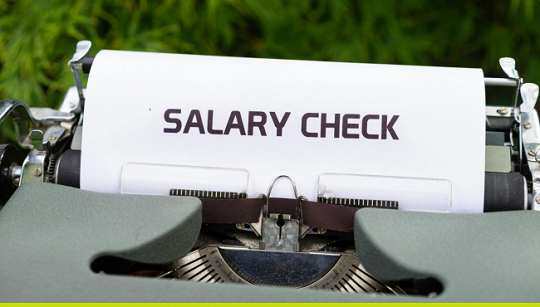Is Your Employer Paying You Correctly? Understanding Minimum Wage Laws

At RDC Solicitors, we know that pay isn’t just about money. It’s about fairness, legal rights, and respect. If you’re unsure whether your employer is paying you correctly, you’re not alone. The UK has strict minimum wage laws to protect workers, but complexities around age bands, apprenticeships, deductions, or irregular hours can create confusion. We’ve put together a clear breakdown to help you understand your entitlements, including information on how RDC can help if something seems wrong.
What Are the Legal Minimum Wage Rates?
From 1 April 2025, the National Living Wage and National Minimum Wage rates are:
- £12.21 per hour for those aged 21 and over (National Living Wage)
- £10.00 per hour for 18–20-year-olds
- £7.55 per hour for those under 18
- £7.55 per hour for apprentices (if under 19 or in first year)
Additionally, if your employer provides accommodation, they can apply an offset of up to £10.66 per day (or £74.62 per week) towards your pay, but no more.
Who Is Entitled to the Minimum Wage?
Under the National Minimum Wage Act 1998, most workers including employees, agency staff, apprentices, and home-workers are entitled to at least the minimum wage.
However, there are exceptions, such as:
- Genuine volunteers (who receive no more than reasonable expenses)
- “Family workers” (e.g., au-pairs living with employers)
- Some student placements, internships, and work experience arrangements—unless they constitute genuine employment.
If you're not sure whether these rules apply to your situation, seek legal advice. Situations vary and specialist assessment matters.
What Does Underpayment Look Like?
Even if your basic pay appears correct, underpayment can still occur in these scenarios:
Long or irregular hours
Salaried staff whose pay divided by hours worked dips below the minimum wage rate.
Unpaid time
If you're “on call” or required to be available, even if at home, you may still be due pay, unless the law specifies otherwise.
Deductions
Employers can deduct for accommodation only up to the statutory cap; other deductions (uniforms, tools) may lower your pay unlawfully.
Zero-hours or casual work
You must still get at least minimum wage for hours worked.
What Can You Do if You're Underpaid?
Request pay records
Under Section 10 of the 1998 Act, you're entitled to see your employer’s records about hours and pay.
Raise concerns informally
Sometimes, simple payroll errors can be corrected internally.
Speak to HMRC
If issues persist, HMRC enforces wage law and can require employers to repay arrears and impose penalties.
Take legal action
You can pursue claims for unpaid wages via the Employment Tribunal. For example, on grounds of unlawful deductions or breach of contract.
Failing to pay minimum wage isn't trivial. HMRC can fine employers up to 200% of arrears per worker, capped at £20,000. Persistent offenders may even face criminal charges or public “naming and shaming”.
Upcoming Changes to Be Aware Of
It’s worth noting that the minimum wage rate may be rising. The UK’s Low Pay Commission forecasts a 4.1% rise to around £12.71 per hour in 2026, in line with the government’s goal to match minimum pay with two-thirds of median earnings.
How RDC Solicitors Can Support You
Initial check
Send us your payslips and contract, and we'll confirm if your pay meets legal standards.
Evidence gathering
We’ll assist in requesting records, collating emails, and building your case.
Negotiation
We can write formally to your employer, seeking resolution before escalation.
Legal claims
Where needed, we’ll take your case to tribunal, managing complexity and advocating for your rights, but always aiming for resolution where possible.
Your right to the correct minimum wage is protected by law, and RDC Solicitors is here to help you enforce it. For further advice and support on handling minimum wage laws, call us on Bingley 01274 723858, Ilkley 01943 601173 or Bradford 01274 735511.


